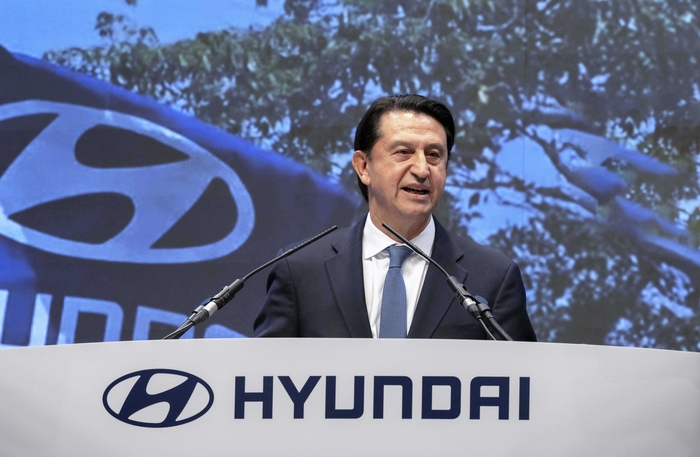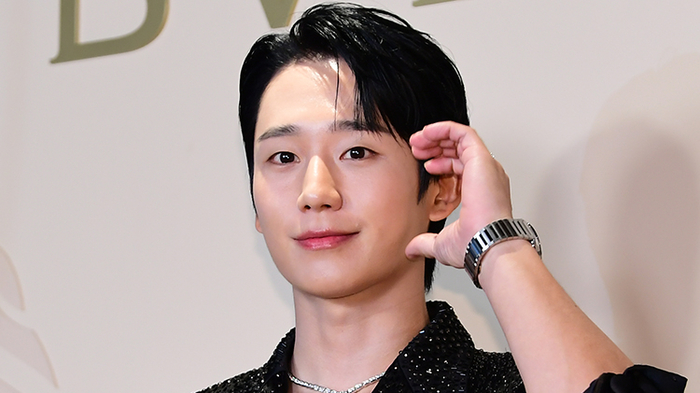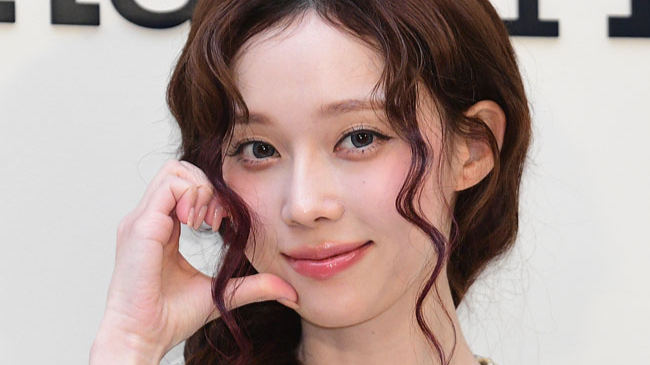
"We will invest $90 billion over the next 10 years to develop 21 new electric vehicles," Hyundai Motor President Jose Munoz said on the 20th. "We plan to launch 10 new products this year alone." He also said, "We will launch electric vehicles for China in the near future." It is determined to focus on expanding the eco-friendly car market pie with increasing electric and hydrogen fuel cell vehicles, while responding to tariff pressures with regional optimization strategies. In addition, President Munoz emphasized Hyundai Motor Group's investment in the U.S., saying, "It has invested $20 billion in the U.S. and employs 570,000 people."
Hyundai Motor held its 57th general shareholders' meeting at L Tower in Yangjae-dong, Seoul on the morning of the 20th, and President Munoz explained his management strategy to shareholders.
Munoz defined this year as a "year of uncertainty." "The business environment in 2025 will intensify trade and geopolitical uncertainty," he said. In particular, he said, "The trade conflict and protectionist stance are intensifying, and competition is expected to intensify due to Chinese companies' overseas expansion of new energy vehicles." Hyundai Motor Group Chairman Chung Eui-sun also unusually defined this year as a "year of crisis" at a New Year's party in January.
U.S. President Donald Trump is foreshadowing an all-round mutual tariff on April 2, and Hyundai Motor Group is also expected to be unable to avoid tariffs. In addition, Chinese automakers such as BYD are accelerating overseas expansion with low prices and high-tech technologies, signaling fierce competition.
In response to such a crisis, President Munoz took out the card to expand the development of new cars such as eco-friendly cars. He proposed a sales target of 2 million electric vehicles in the global market, including developing 21 new electric vehicles by investing $90 billion over 10 years and expanding hybrid models from 7 to 14.
Strengthening regional optimization strategies was also introduced as a major strategy. We will respond flexibly to any policy changes with our localization strategy in the United States, he said. President Munoz took charge of the U.S. under the new Regional Responsibility System, which was created when Hyundai Motor Group suffered from a sharp drop in sales in China after the THAAD crisis in 2017, and boosted U.S. sales. Based on the successful experience of the localization strategy, the company aims to bring out Hyundai's second leap forward.
Munoz plans to use Hyundai Motor Group's Meta Plant America (HMGMA), which will hold its completion ceremony this month, as leverage. "We will expand sales of electric vehicles by producing Ioniq 5 and Ioniq 9 at HMGMA," he said. "We will build a hybrid production system to produce additional hybrid models."
In the European market, where environmental regulations are strong, new electric vehicle models, including Casper EV and Ioniq 9, are launched, and in the Middle East, where Hyundai Motor's sales share is still low, the company plans to lower costs and increase supply through Saudi Arabia's CKD (semi-assembly) plant. He also said he would expand strategic collaboration. "Hyundai Motor is cooperating with GM in vehicle development, joint purchase cooperation, and the application of the sixth-generation fully autonomous driving technology Ioniq 5 with Waymo," he said.
Hyundai Motor added a hydrogen business to its articles of incorporation through a general shareholders' meeting. Article 2 added 'hydrogen business and other related businesses' as the final item for business purposes, and the purpose of the change was to "consider the possibility of expanding hydrogen-related businesses in various ways." This means that we will run an overall business, not just hydrogen vehicle development but hydrogen supply and transportation.
Hyundai Motor Group Chairman Chung Eui-sun and Hyundai Motor Vice President of ICT Jin Eun-sook were appointed as in-house directors at the shareholders' meeting. Vice President Jin is Hyundai Motor's first female executive director.














